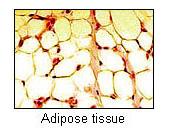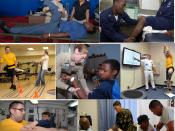Bones and muscles, ligaments and tendons comprise nearly 60 percent of the body. Manual medicine practitioners view the musculoskeletal system as more than a coat rack for organs. Like a computer hard drive, the skeletal system is "wired" to the other complex body processes that help us to breathe, sleep and feel pain. An ailing hard drive, as computer users know, spells trouble. "Wiring" problems in muscles and joints can affect the entire body, sometimes surfacing as pain, hearing loss or migraines. Varieties of manual therapy range from gentle stroking and kneading of muscles and other soft tissues to deeper manual techniques. Some focus on one specific function of the body (see lymphatic massage below). Others, such as trigger point and Myotherapy, seek to relieve muscle contraction in a target area. Most practitioners rely on a combination of techniques. Currently, few clinical trials examine the effects of massage. However, practitioners believe that the therapeutic benefits of manual techniques are due, in part, to their ability to affect changes in the musculoskeletal, circulator-lymphatic, and nervous systems.
÷Manual therapy is a general term for modalities that use the hands to diagnose and treat illness and musculoskeletal disorders, as well as to maintain health.
÷This includes any hands-on technique, especially therapeutic manipulation of body structure, e.g., deep tissue or connective tissue. As such it is often "bunched" under the general term of physiotherapy, along with Electrotherapy techniques, Exercise programmes, and other services - taping and splinting, correcting flawed sporting techniques, providing or offering information on equipment aids such as wheelchairs and walking frames.
÷Three types of physiotherapy
Physiotherapy is an effective form of treatment for a wide range of conditions. It can also help speed recovery after many different types of surgery. Physiotherapists are trained in a range of specialist areas such...


